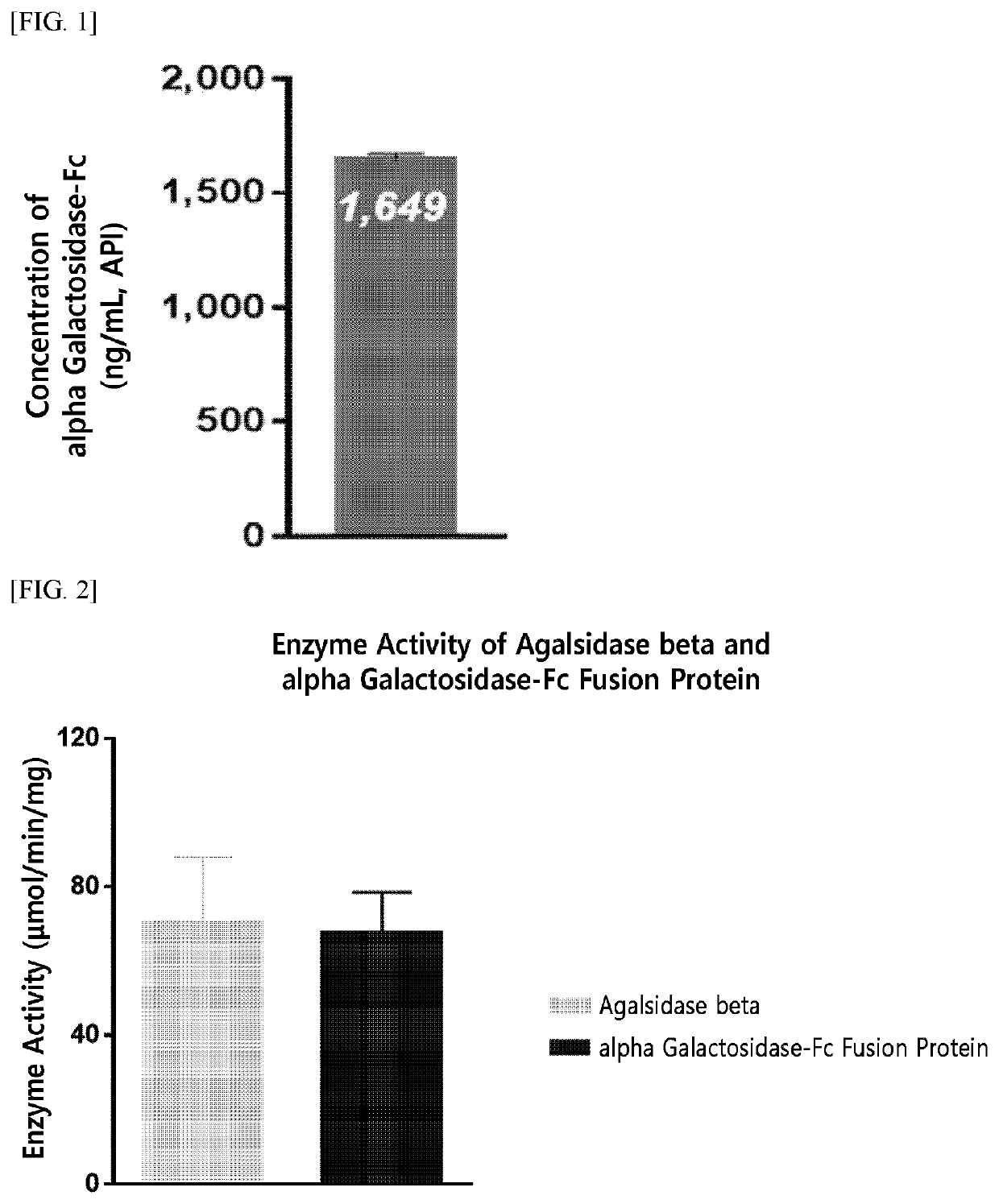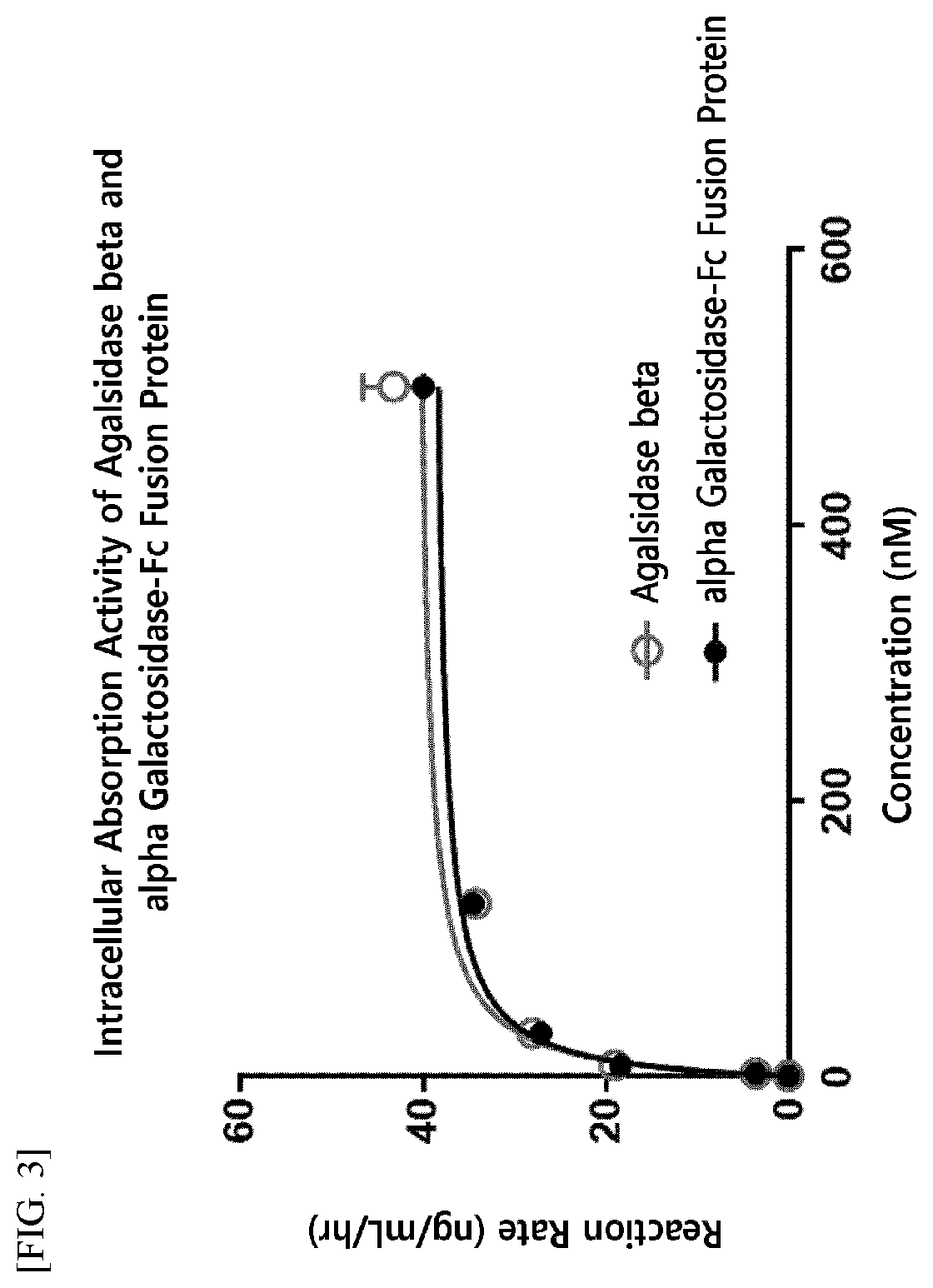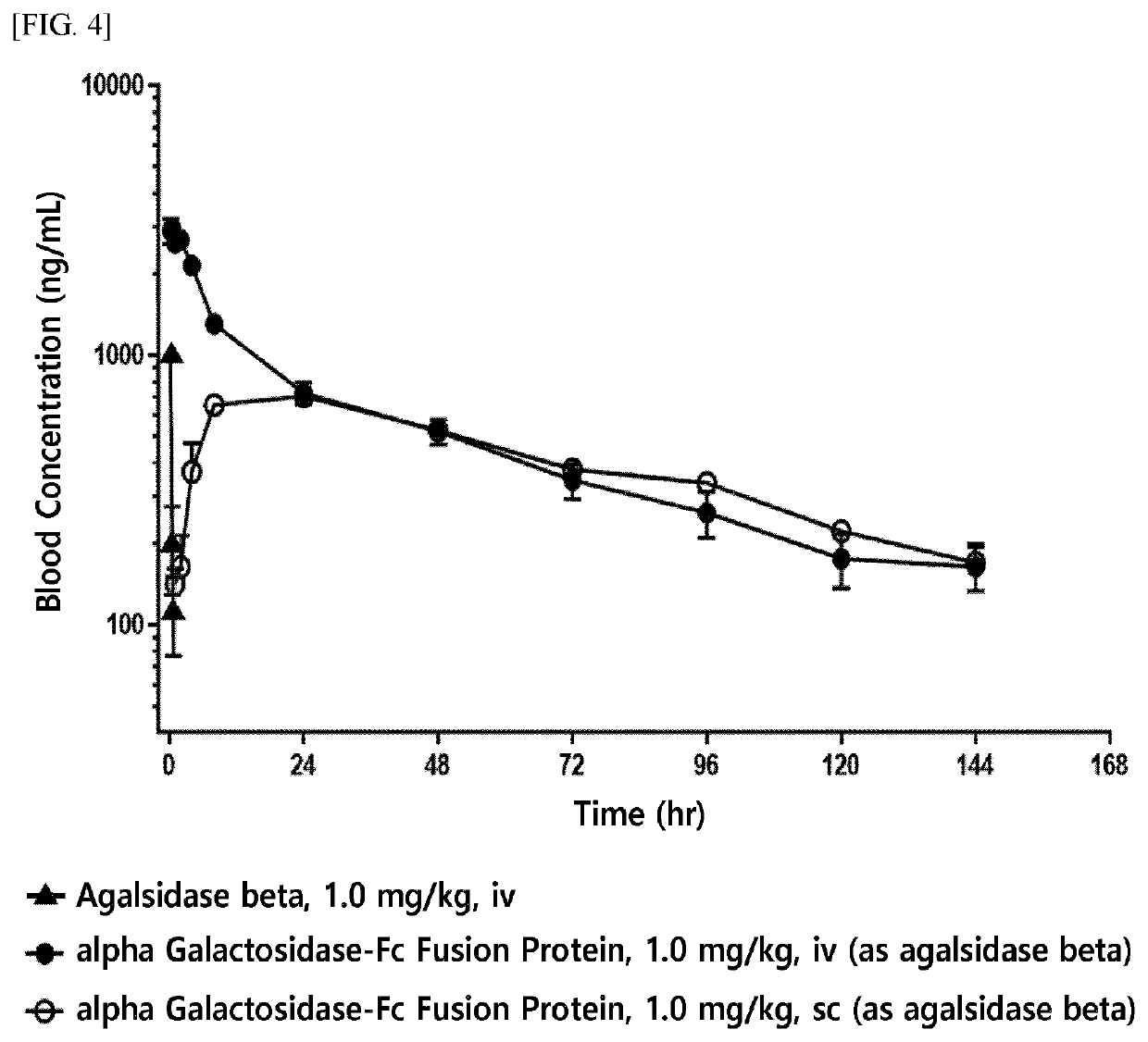Therapeutic enzyme fusion protein having a novel structure and use thereof
a technology of enzyme fusion and novel structure, applied in the field of enzyme fusion protein, can solve the problems of low stability of proteins exhibiting such therapeutic effects, denatured and decomposed, and cell function problems, and achieve the effects of reducing the mechanism of enzyme removal by the kidney, increasing stability, and effectively using patients
- Summary
- Abstract
- Description
- Claims
- Application Information
AI Technical Summary
Benefits of technology
Problems solved by technology
Method used
Image
Examples
example 1
on of Enzyme Fusion Protein
[0200]For the production of an enzyme fusion protein including a therapeutic enzyme in the form of an anti-parallel dimer, the present inventors have fused native alpha-galactosidase, a linker (SEQ ID NO: 10), and an Fc immunoglobulin region (SEQ ID NO: 7) at the gene level, and have inserted the fused product into an expression vector.
[0201]To remove the sites for chain exchange and N-glycosylation in the Fc regions of the constructed fusion protein, a site-directed mutagenesis PCR technique was used.
[0202]Specifically, the 2nd amino acid of the Fc region (i.e., serine) involved in the chain exchange was substituted with proline using the primers (SEQ ID NOS: 1 and 2), and the 71st amino acid of the Fc region (i.e., asparagine) involved in the N-glycosylation was substituted with glutamine using the primers (SEQ ID NOS: 3 and 4) from a Fc region (SEQ ID NO:8).
TABLE 1Primers for mutagenesisSEQIDPrimerSequenceNOFc(S2P)_F5′- CTGGCGGTGGCGGATCGCCACCATGCCCAGCAC...
example 2
ion of In Vitro Enzyme Activity of Enzyme Fusion Protein
example 2-1
of Alpha-Galactosidase-Fc Fusion Protein
[0206]The alpha-galactosidase-Fc expression vector (pXOGC-alpha galactosidase-Fc) prepared in Example 1 was transformed into the CHO-S cell line and thereby a cell line capable of mass production of an alpha-galactosidase-Fc fusion protein was prepared.
[0207]Specifically, CHO-S cells were allowed to proliferate by suspension culture in a 1 L Erlenmeyer flask (Corning Inc., Cat. No. 431147) using a serum-free medium (FreeStyle™ CHO Expression Medium, Thermo Fisher Scientific, Cat. No. 12651014). When the cells within a culture container reached a confluency of 5×108 cells, they were transformed using the FreeStyle™ MAX (Thermo Fisher Scientific, Cat. No. 16447-100). That is, each of two tubes was independently charged with 10 mL OptiPro™ SFM (Thermo Fisher Scientific, Cat. No. 12309-019), and then, one tube was charged with 500 μg of DNA and the other tube was charged with 500 μL of FreeStyle™ MAX. The two solutions in each tube were mixed, pla...
PUM
| Property | Measurement | Unit |
|---|---|---|
| temperature | aaaaa | aaaaa |
| stability | aaaaa | aaaaa |
| binding affinity | aaaaa | aaaaa |
Abstract
Description
Claims
Application Information
 Login to View More
Login to View More - R&D
- Intellectual Property
- Life Sciences
- Materials
- Tech Scout
- Unparalleled Data Quality
- Higher Quality Content
- 60% Fewer Hallucinations
Browse by: Latest US Patents, China's latest patents, Technical Efficacy Thesaurus, Application Domain, Technology Topic, Popular Technical Reports.
© 2025 PatSnap. All rights reserved.Legal|Privacy policy|Modern Slavery Act Transparency Statement|Sitemap|About US| Contact US: help@patsnap.com



